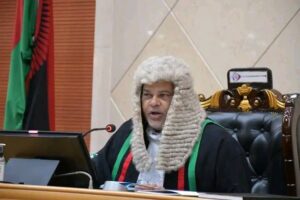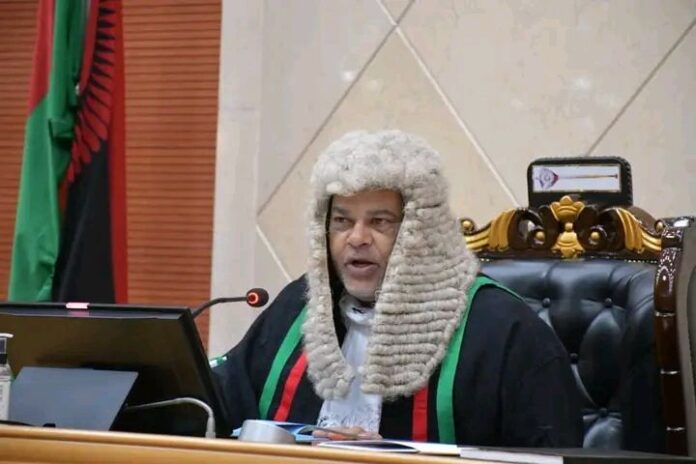By Burnett Munthali
The swearing-in of Sameer Suleman as Speaker of Parliament marks a defining moment for Malawi’s democracy — one that carries both symbolic weight and practical implications for the country’s governanceFor years, the National Assembly has been criticized for its lack of independence and its perceived failure to hold the executive accountable, often succumbing to political manipulation and partisan interests.
Suleman’s elevation to the Speaker’s chair brings with it renewed optimism that the legislature can reclaim its rightful place as a pillar of democratic oversight and transparency.

Known for his boldness, eloquence, and willingness to challenge authority, Suleman represents a new kind of parliamentary leadership that refuses to be intimidated by political pressures.
His previous role as a vocal legislator, particularly in debates involving economic governance, public accountability, and agricultural reforms, earned him respect across party lines — but also made him a target of political adversaries.
This makes his rise to the speakership all the more remarkable, as it reflects the growing demand among MPs and citizens alike for leadership that values integrity over political allegiance.
The Speaker’s position in any democracy is not just ceremonial; it is the moral compass of the legislature and a safeguard against abuse of power.
As such, Suleman’s greatest challenge will not merely be managing the day-to-day affairs of the House, but rather reshaping its culture — from one of political confrontation to one of principled deliberation.
He must demonstrate that Parliament is not an appendage of the ruling elite but a robust institution that serves the people of Malawi with independence, dignity, and efficiency.
The question that lingers in the minds of many Malawians is whether Suleman can rise above partisan loyalty, especially given his roots in the Democratic Progressive Party (DPP).
History has shown that Speakers often face immense pressure to favor their own parties, but true leadership lies in defying such expectations and standing for constitutional principles.
To build a stronger Parliament, Suleman will need to set new standards of impartiality — ensuring that both government and opposition members are treated fairly and that debates are guided by substance rather than emotion.
He must also restore discipline within the House, as disorderly conduct and political theatrics have often undermined serious policy discussions in previous sessions.
Furthermore, his leadership will be tested by how effectively he manages legislative oversight on public finances, corruption scandals, and executive accountability.
The country’s economic challenges — rising inflation, youth unemployment, and fiscal mismanagement — demand a Parliament that scrutinizes government policies rigorously and proposes sustainable alternatives.
Suleman’s commitment to transparency and procedural fairness could set a precedent for how future Speakers conduct themselves in a democracy still maturing 30 years after the 1994 transition.
However, the success of his tenure will not depend on him alone; it requires cooperation from MPs who must transcend partisan politics and prioritize the national interest.
The Speaker’s chair, as Suleman himself has rightly observed, belongs not to any political party but to the people of Malawi, whose voices are represented in the chambers of Parliament.
This philosophy must guide every ruling, every debate, and every decision that emanates from his leadership if the National Assembly is to regain public trust.
Beyond the political theater, Malawians want a Parliament that delivers — one that ensures that every kwacha in the national budget is accounted for, every policy is scrutinized, and every voice matters.
The stakes are high, particularly as the country heads toward the 2025 general elections, where questions of governance, corruption, and economic hardship will dominate the national agenda.
If Suleman can transform Parliament into a credible institution of checks and balances, his tenure may well go down as one of the most consequential in Malawi’s democratic history.
Conversely, if he allows the Speakership to become a tool for political maneuvering, his legacy will fade as just another missed opportunity in the long quest for reform.
Ultimately, Malawi’s democracy thrives not merely on elections but on the strength of its institutions — and Parliament stands at the heart of that equation.
Sameer Suleman’s Speakership offers a glimmer of hope that the National Assembly can once again become a beacon of accountability, unity, and progress.
His challenge now is to turn that hope into action, to move from symbolism to substance, and to prove that leadership in Parliament can indeed serve the people before it serves politics.



